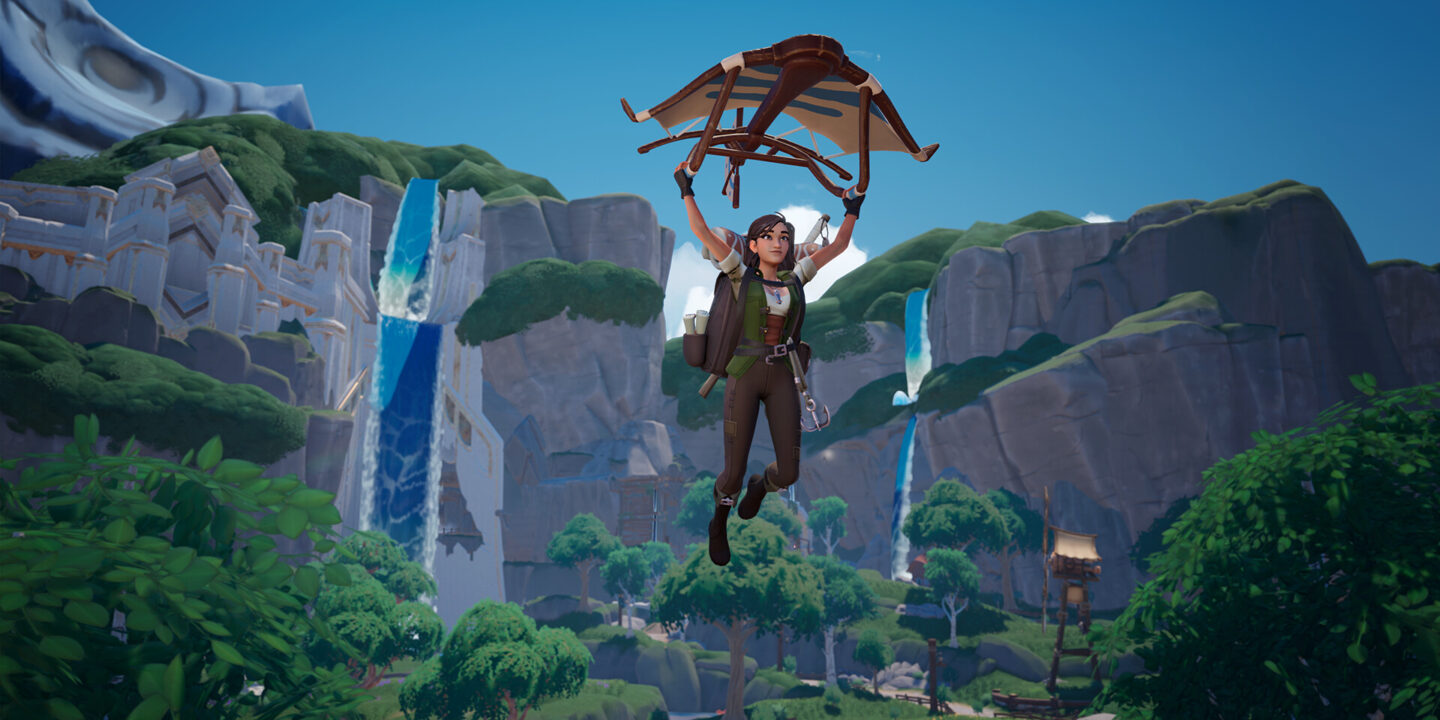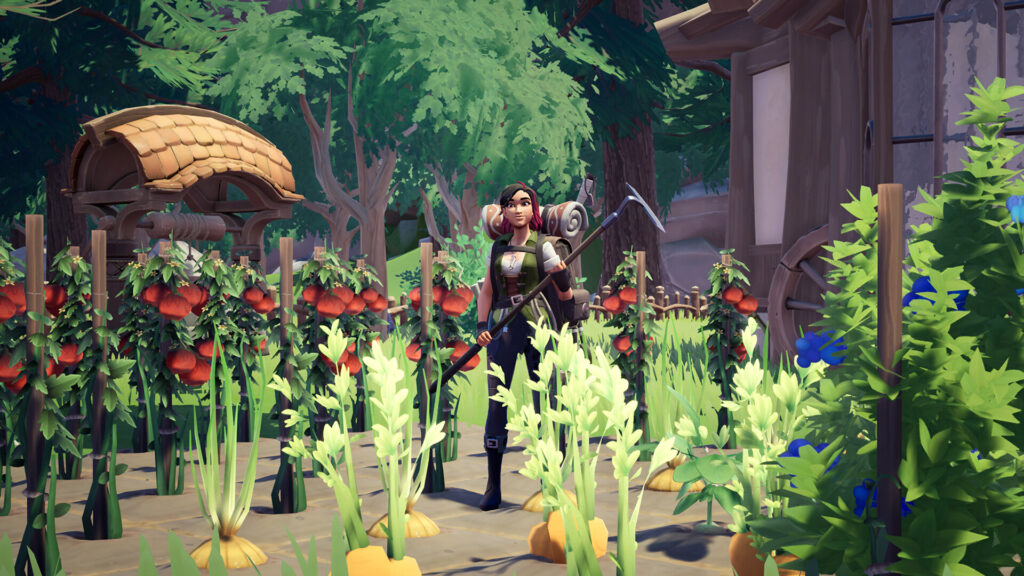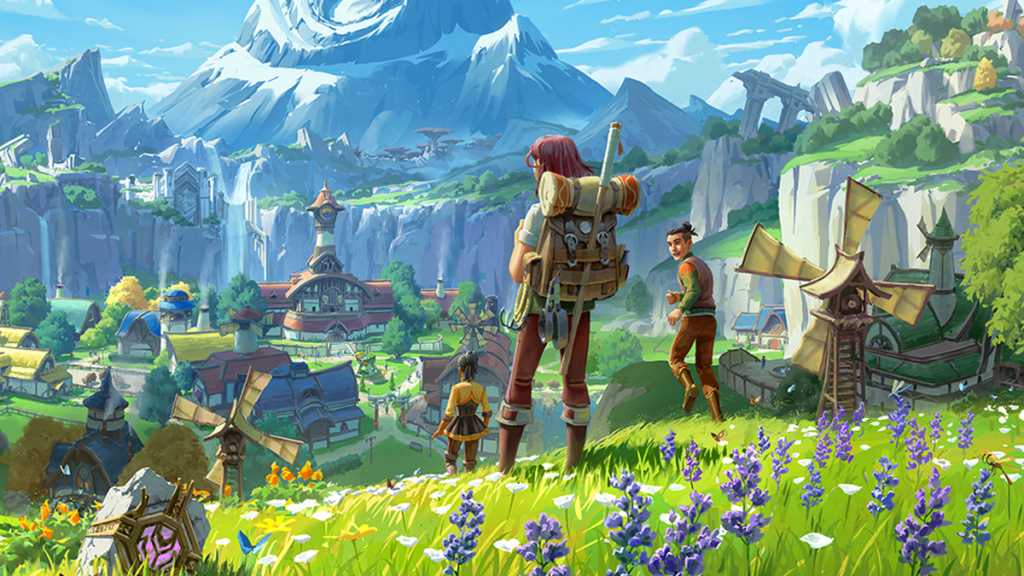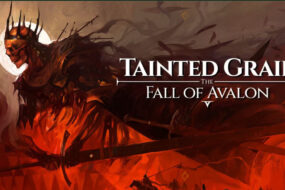
Palia is a serene, charming life simulation game that blends the tranquil vibes of beloved titles like Stardew Valley and Animal Crossing with the connected experience of a shared multiplayer world. It offers players a vast digital retreat, filled with immersive activities like fishing, hunting, crafting, and socializing. After spending over 70 hours with it, it’s clear that Palia has succeeded in creating a world that’s hard to leave, even if it’s not quite finished yet.
The core appeal of Palia lies in its ability to provide a warm, relaxing environment while still encouraging interaction with others. Unlike most cozy sims where solitude is the norm, this game introduces large-scale multiplayer elements that push players—especially the more introverted among us—into low-stress, cooperative encounters. You might bump into someone while foraging or chopping wood and realize you’re both working toward the same community goal. There are even specific gameplay elements, like magical trees that require group effort to harvest, designed to foster this sense of communal play.
This culture of collaboration has created an online community that’s surprisingly positive and inviting. It’s common to see players in the public chat giving helpful tips or alerting others to rare resource spawns. People frequently wait patiently for others to arrive before collecting items together, a level of generosity and politeness that’s rare in online spaces.
Despite its multiplayer framework, Palia remains very much accessible to solo players. There’s an impressive amount to do, whether you want to improve your character’s skills, expand your homestead, or deepen relationships with the local NPCs. Activities like cooking and fishing feel well-designed and engaging. Fishing, for instance, isn’t just a passive task—you actively control your rod and respond to the fish’s movement, making it a more hands-on experience than what’s usually seen in the genre.




Hunting is another standout feature. While it’s designed to remain stress-free, the auto-aiming mechanics can feel overly generous at times, taking some of the satisfaction out of a well-placed shot. Arrows tend to swerve unnaturally toward targets, which may be welcome to some, but it can also undercut the sense of skill and precision.
One of the more surprising elements of Palia is its story. It explores themes of lost civilizations and forgotten magic, with players investigating the ruins of a human society that has mysteriously disappeared. Though the narrative maintains a lighthearted tone, it adds a meaningful layer to the overall experience. Unfortunately, even with the addition of the Elderwood expansion, the story feels incomplete, trailing off abruptly and leaving major plot threads unresolved. It’s a curious design choice, especially considering how well-developed other parts of the game are.
There are also plenty of diversions to enjoy, from platforming challenges to clever minigames like a hotpot-themed card game that’s far more addictive than it has any right to be. However, not all these diversions land perfectly. Platforming, in particular, can feel rough due to inconsistent climbing mechanics and floaty controls. That said, the low stakes in failure—no real penalties for falling—mean it’s more an inconvenience than a dealbreaker.
Palia’s home building system is one of its strongest features. It strikes a perfect balance between ease of use and depth. Instead of placing individual walls like in The Sims, or choosing from preset house templates like in Animal Crossing, you’re given modular pieces that you can snap together to create your ideal layout. Once the structure is in place, the decoration system lets you fine-tune every detail. It’s easy to get lost in customizing your home, especially when there’s so much to collect and so many ways to express your style.
This progression is supported by resource-gathering mechanics that feel both rewarding and intuitive. As you level up skills, you unlock new crafting stations, better tools, and new materials to gather. There’s no heavy-handed timegating here; the game lets you move at your own pace for the most part, making it all the more satisfying when you finally complete a new room or furnish your house just the way you want it.
A big part of what keeps you coming back is the charming cast of NPCs. There are 26 townsfolk to befriend or romance, each with unique personalities and story arcs that unfold over time. These character relationships are a highlight, with writing that gives each figure depth and believability. Take Kenyatta, the mayor’s sarcastic daughter, who initially seems aloof but eventually opens up in meaningful and touching ways. Even characters who might not resonate at first—like the eccentric and somewhat grating Elouisa—still manage to leave a lasting impression.
The relationship-building mechanics, however, are one of the few places where time restrictions feel unnecessarily frustrating. You can only talk to each character once per in-game day, and gift-giving is limited to one item per real-world day. This can seriously slow your progress, especially in the early stages when your ability to advance in the game hinges on gaining the support of a villager. It’s at odds with the otherwise free-form nature of the experience.
Palia has expanded meaningfully since its early days, particularly with the addition of the Elderwood region, which brought new areas to explore and characters to meet. Still, the world remains a bit limited in scope. Despite being filled with nooks and secrets, the existing maps can be fully explored relatively quickly. There’s also a curious lack of interactive elements within homes—most decorations are purely cosmetic, and you can’t do things like lie in bed or use kitchen sinks. It gives houses a bit of a “dollhouse” feel, rather than a lived-in space.
Technical issues are another sore spot. While things have improved, glitches remain. NPCs sometimes sink through the ground, pop-in is frequent, and load times between zones are longer than they should be. The experience on the Nintendo Switch is especially rough, with poor graphics and sluggish performance making it a hard sell on that platform.
Verdict
Palia is a delightful, deeply engaging multiplayer life simulation that successfully reimagines the cozy game formula for an online world. It offers a generous range of activities, a lovable cast of characters, and an impressively open-ended home-building system. While its story remains incomplete and some systems—particularly relationship mechanics—are hampered by odd restrictions, the game still shines as a virtual escape full of charm and warmth. There’s room for it to grow, and hopefully it will, but even in its current state, Palia is a cozy experience well worth diving into.




